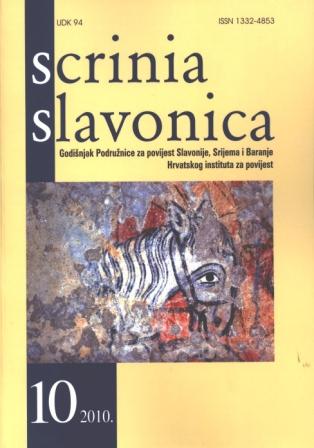Basic characteristics and circumstances of the democratization of social and political life in the Municipality of Slavonski Brod in 1990
Osnovna obilježja i okolnosti demokratizacije društveno-političkog života slavonskobrodske opæine tijekom 1990
Author(s): Mladen BaraćSubject(s): History
Published by: Hrvatski institut za povijest
Keywords: democratization; multi-party system; elections; municipality of Slavonski Brod; everyday life; 1990
Summary/Abstract: Although the communist rule was brought down without outbursts of violence or use of force in almost all European socialist countries (with the exception of Romania, where the principal communist power-holder Nicolae Ceausescu was disempowered and executed in a revolution) as a result of the relentless desire of their citizens for democratic reform of their countries, almost half a century of communist rule in Yugoslavia did not come to a peaceful end. Democratic movements in Yugoslav republics could not be suppressed, but they soon united seemingly completely unnatural ideological allies – aggressive Serbian nationalism and radical Yugoslav communist unitarianism endorsed by some of the former members of Communist League of Yugoslavia (SKJ) and hardliners from the Yugoslav People’s Army (JNA) – against the newly elected democratic governments in Croatia, Slovenia, and later also in Bosnia and Herzegovina. The alliance rested on the firm intention of its leaders, Slobodan Miloševiæ and Veljko Kadijeviæ, to stop the separation of the said republics in their AVNOJ (Anti-Fascist Council of the People’s Liberation of Yugoslavia) borders from the rest of Yugoslavia by using armed force. The social and political circumstances in the Municipality of Slavonski Brod were therefore profoundly influenced by the political developments in the rest of Yugoslavia. For the Municipality of Slavonski Brod and its residents, 1990 brought more than mere reform of political system and beginning of transition from a single-party system to a pluralistic democratic society. It was also a time of great expectations and fear of what was going to come. Democratic changes allowed for public criticism of the past func- 452 M. Barać: Osnovna obilježja i okolnosti ... tioning of former communist authorities and for the rejection of socialist methods of government and social development, and they enabled the citizens to face the previously unmentioned legacy of communist repression and Partisan crimes committed during and after World War II. The ideals on which the socialist society had rested (the role of Partisan fighters in the public life, socialist organizations built on the principle of “fraternity and unity”, Josip Broz Tito’s personality cult) were gradually dismissed, but we must emphasize that the same ideals had become redundant all over Yugoslavia. Formerly suppressed, concealed, and trivialized traits of Croatian national identity, such as names of important historical figures and important dates of Croatian history, made a grand comeback to the public life, and the return of religious communities to the public life, especially the Catholic Church as the largest religious community in this area, was also very prominent. Any major change, regardless of its final objective and the positive values it aspires to, causes its problems, injustices and difficulties. Many things had not changed for the better with the arrival of democrati
Journal: Scrinia Slavonica
- Issue Year: 2010
- Issue No: 10
- Page Range: 419-453
- Page Count: 1
- Language: Croatian

